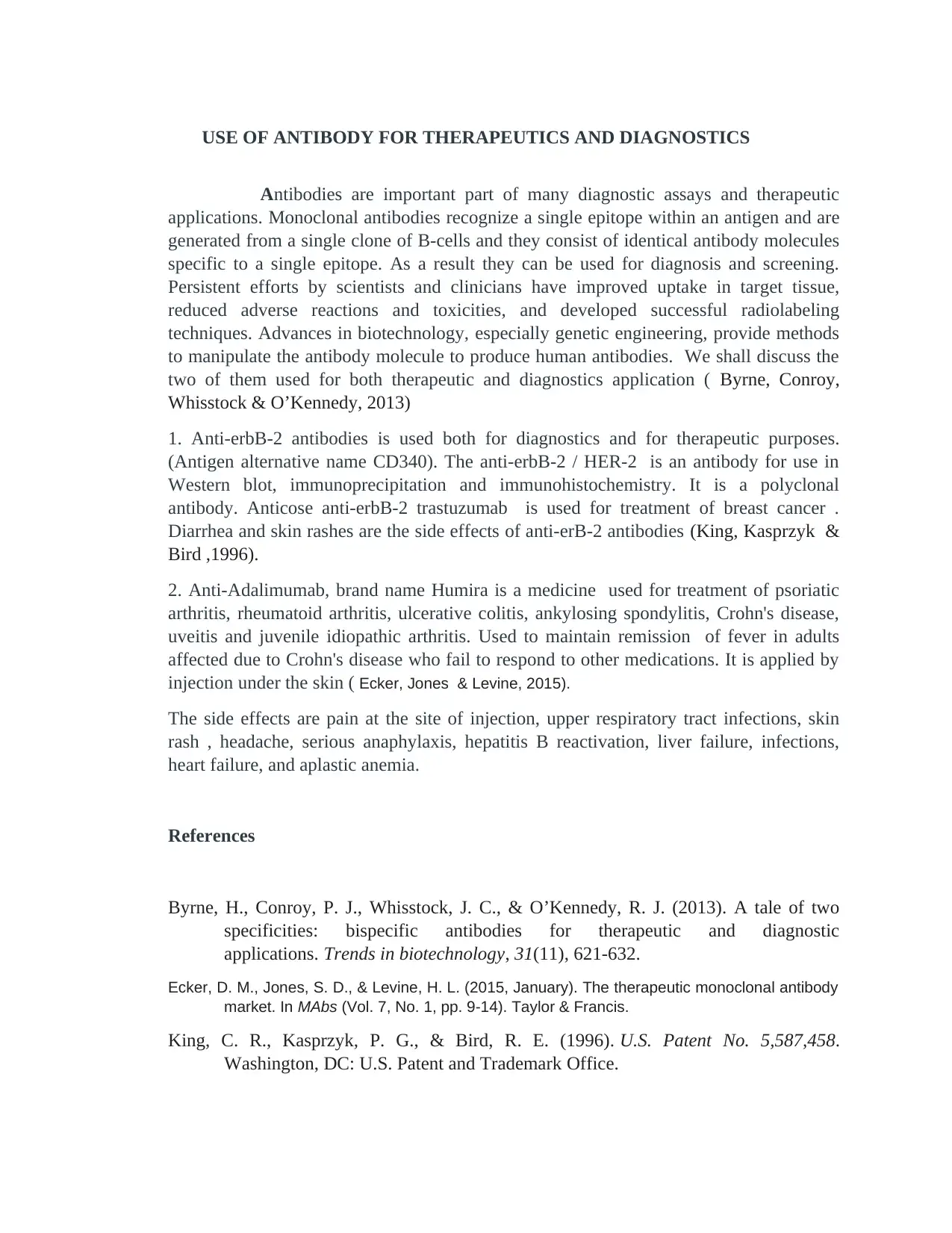Antibody Applications: Therapeutics and Diagnostics Analysis
VerifiedAdded on 2023/04/12
|1
|355
|197
Report
AI Summary
This report delves into the dual application of antibodies in both therapeutic and diagnostic contexts. It begins by outlining the fundamental principles of monoclonal antibodies and their significance in various medical applications. The report then explores the efficiency of using the same antibody for both purposes, acknowledging the potential benefits but also highlighting practical considerations. Two specific examples are presented: Anti-erbB-2 antibodies used for both diagnostics and the treatment of breast cancer, and Anti-Adalimumab (Humira) used for various conditions. The report discusses the side effects of each antibody, providing a balanced view of their therapeutic potential and associated risks. The analysis concludes with a discussion of the factors that may influence the straightforwardness of using antibodies for both applications, such as specificity, target tissue uptake, and adverse reactions.

![[object Object]](/_next/static/media/star-bottom.7253800d.svg)